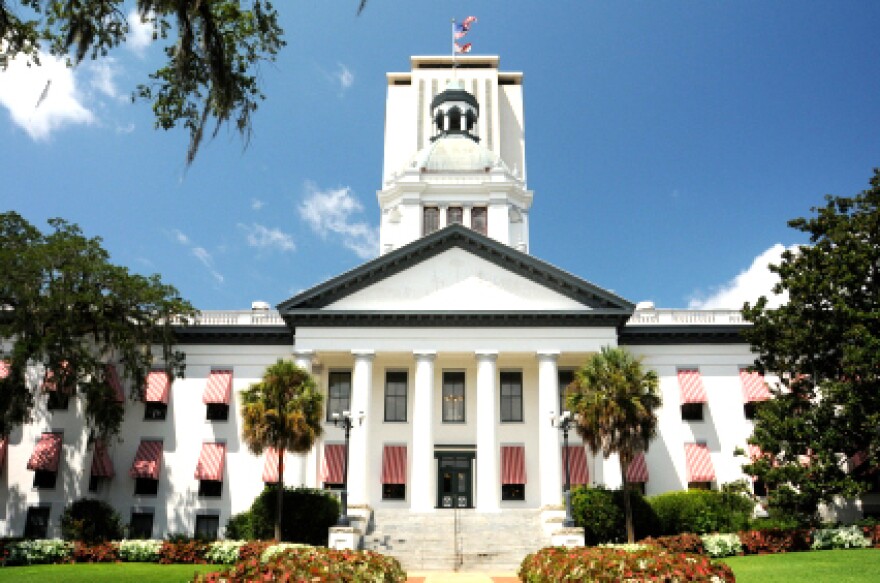House and Senate leaders unveiled budget proposals Friday that stand almost $1 billion apart, clarifying differences in overall approaches to the spending plans and in a handful of key areas.
The House proposal would spend just shy of $80 billion during the fiscal year that begins July 1, while the Senate would spend a little less than $81 billion. The difference between the two is roughly $989 million. Either plan would be heftier than Gov. Rick Scott's proposal, which weighed in at $79.3 billion.
Many of the details about the budget plans were rolled out by House and Senate committees over the course of the week. But the proposals released Friday showed the overall totals and outlined differences in a couple of items generally handled in the context of the larger plan.
Some of the gap between the two plans stems from accounting differences or other technical aspects. For example, the Senate proposal accounts for $400 million that the state is likely to receive from a settlement related to the Deepwater Horizon oil spill; the House leaves out those funds.
As far as specific areas of the budget, the Senate would spend more on health care and other human services --- much of it in the Agency for Health Care Administration, which oversees Medicaid --- and economic development. The House would provide more funding for education, though it devotes slightly less to public elementary and secondary schools.
Both chambers would break from Scott's plans on how to provide more compensation to state employees. Scott proposed giving every worker a chance to earn a bonus of up to $1,500, while the House and Senate would target raises toward specific employees.
Among the employees who would receive pay raises from the Senate would be forest firefighters and corrections officers; Scott vetoed a pay raise for firefighters that was included in the current year's budget. The House would boost salaries for several groups of state workers, including the firefighters; workers in the guardian ad litem program, which represents children in court; and employees of the Department of Veterans' Affairs.
Speaking to reporters on Friday, Scott stood by his plan on compensation.
"What I've proposed is that we have bonus plans tied to performance," he said. "I've always believed that. I believed that in business."
The House and Senate spending plans also reveal a rift on whether to spend tens of millions of dollars on charter school construction needs. The House plan would devote $90 million to that cause; the Senate doesn't set aside any money. Both chambers would provide funding for construction at traditional public schools, the Florida College System and the State University System.
The proposals also preserved differences that had been discussed earlier in the week. The Senate has devoted $250 million to a new "Florida Enterprise Fund," proposed by Scott, aimed at providing economic-development incentives. The House has declined so far to provide that money, though budget-writers there have signaled that they could go along with the program later.
The House and Senate will use the budget proposals as a starting point as they prepare to negotiate a final spending plan. Scott told business leaders Friday to keep the pressure on lawmakers about the funding for business incentives.
"Where we are today we would not want to finish" the session, Scott told members of the Enterprise Florida Board of Directors meeting at Florida State University.
The governor added that without the money for the public-private business recruitment agency, Florida's economic momentum "will slow down for the next three years."
But Senate Commerce and Tourism Chairwoman Nancy Detert, a Venice Republican who sits on the Enterprise Florida board, advised members "you're on track for success this year" and to take "a soft approach."
Scott has also promoted $1 billion in tax cuts, a figure the House seems more eager to meet than the Senate. But even House members have taken a different approach to tax relief than Scott, who wouldn't directly answer a question from reporters Friday about whether the amount of cuts was more important than the shape of them.
"It's more important to get more jobs," he responded. "Everything I'm trying to do is to create an environment where a family says, 'I know I want to live in Florida because I can get a good-paying job.'



